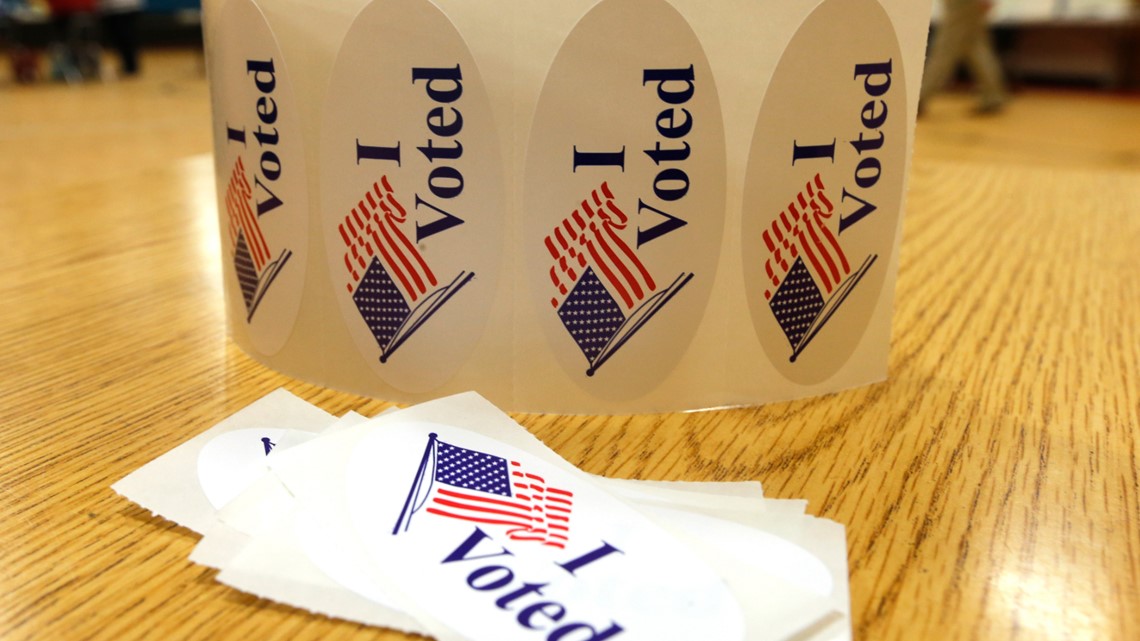WASHINGTON D.C., DC — DC health advocates are urging Mayor Muriel Bowser to declare the opioid crisis a public health emergency.
According to the Centers for Disease Control, D.C. now ranks number one for all overdose deaths, trailing behind West Virginia by just 7% for the most opioid overdoses in the country.
The Chief Medical Examiner issued an alert in D.C. after 24 people overdosed in the 24 hours between April 3 and 4. The overdoses were not deadly, and many were revived by using naloxone according to the Department of Behavioral Health.
On June 22, 2021, Shekita McBroom went into her daughter Jayla's bedroom to wake her up for school and discovered the 17-year-old had died of a fentanyl overdose.
"My daughter was not a heroin addict she was not a drug user that's what they say about our children, and I won't have them keep lying on my child," McBroom cried.
According to a March report by the Chief Medical Examiner, opioid-related deaths have spiked since Jayla lost her life. Last year alone, 448 D.C. residents died of overdoses – that's an average of 37 people each month. The report shows 72% of the victims are Black men between 40 and 69 years old with the majority living, and sadly dying, in wards 5, 7 and 8 where advocates said the city lacks resources to help those in need.
"The opioid crisis is almost as bad as the COVID crisis, it's much worse than the homicide crisis," said Ambrose Lane, Chair of the Health Alliance Network.
The Health Alliance Network and the Opioid Solutions Working Group gathered outside the Wilson building Monday. They're asking the Council and Mayor to declare the opioid crisis a public health emergency and fund up to $50 million for resources and treatment facilities.
"The opioid heat map and the crime heat map are virtually the same," explained Lane as he pointed at a print-out of both MPD and DC Health data.
He said the data shows a connection between overdoses and crime, with poverty and housing instability as the currents that run through both.
“That says if you address the opioid crisis, you begin to address the crime and violence crisis,” Lane added.
“What we have learned from the crack cocaine epidemic is to help those suffering from the opioid crisis how many residents have to die before the city understands we are under siege again?” asked Rhonda Johnson, CEO of Now Hope to Reality who is organizing a walk for recovery on the Mall Saturday at noon.
"I'm going to fight until there's no more breath in me to make sure we don't continue burying our children,” said McBroom.
According to the DC Department of Behavioral Health, 5% of overdose deaths occur in their own homes or the homes of family or friends.
“We urge everyone who knows someone at risk of a drug overdose to get and keep naloxone. You could save a life.”
To receive free naloxone by mail, text Livelong DC to 888-811.
The complete statement is below:
Department of Behavioral Health has mobilized hundreds of government and community partners to combat the opioid epidemic and save lives with evidence-based strategies to prevent overdoses, expand treatment, and support recovery from drug use. Like in jurisdictions across the country, opioid overdoses and deaths continue to climb driven by the illegal synthetic drug Fentanyl.
Thousands of overdoses have been reversed with naloxone, a lifesaving medication free in about 40 pharmacies and sites across DC. More than 156,000 naloxone kits have been distributed by 130 community partners, by mail or by home delivery as well as 28,543 test strips that can detect the presence of fentanyl. More people are getting medication assisted treatment, often with free transportation, and matched to job and housing supports.
.png)









 English (US) ·
English (US) ·